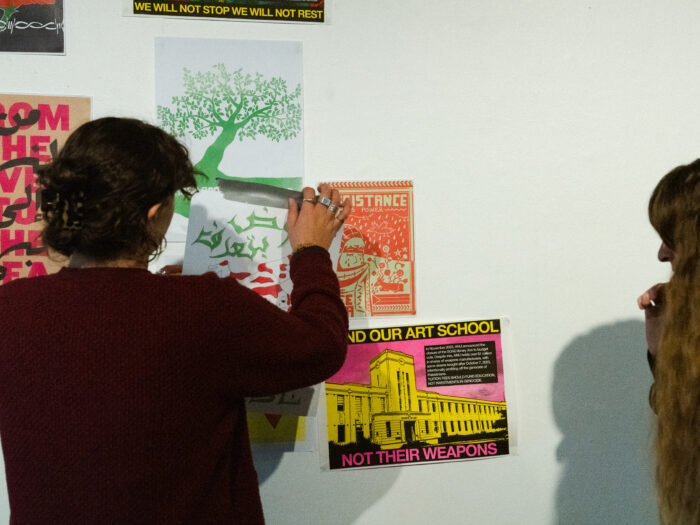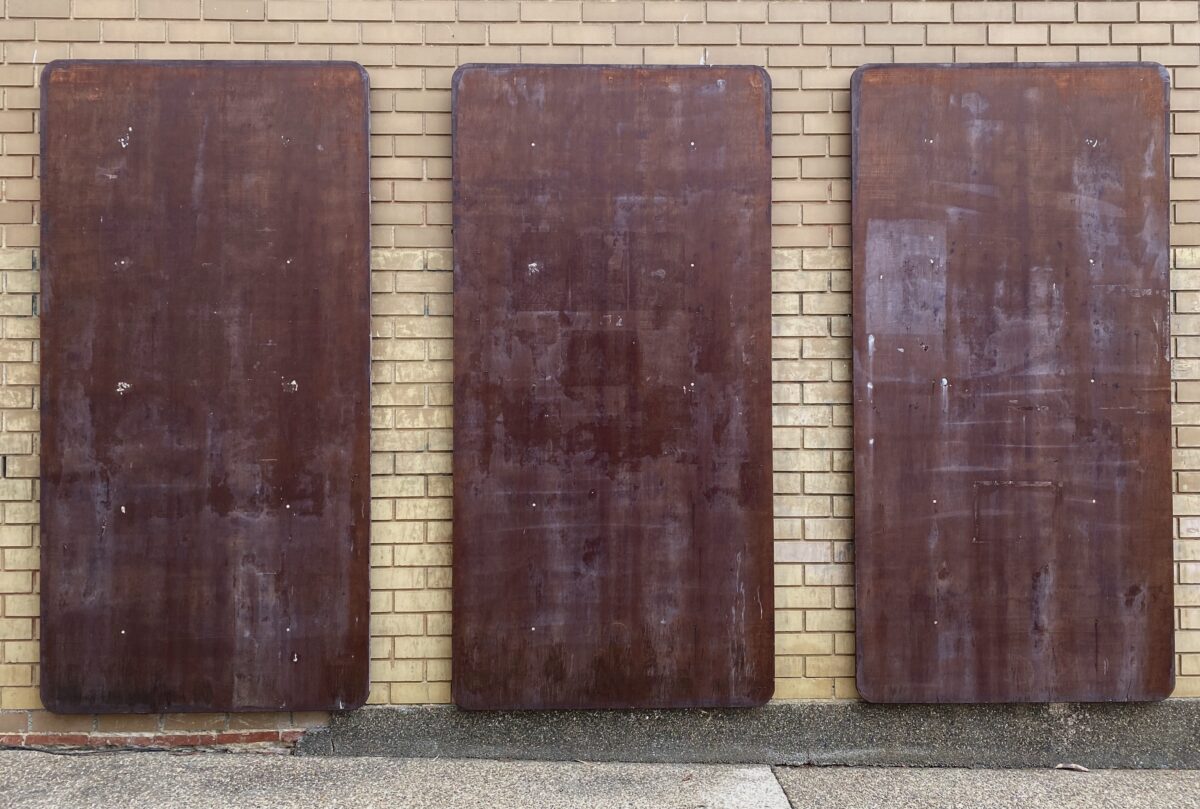On 6 February 2025, ANU enacted its ‘Posting on ANU Campus’ policy, after proposing a draft version to students in October 2024. The policy differs slightly from what was initially proposed and was met with notable student backlash, including campaigns by ANUSA and activist group Students and Staff Against War. It maintains its fundamental goal of regulating “the requirements for the use of posters, banners and other display materials” on campus, limits the display of materials from non-university affiliated parties, and requires approval for any displays outside of its guidelines.
The ANU confirmed that a 2025 Poster Policy would be going ahead in their submissions to the Parliamentary Enquiry on Antisemitism on 22 January, listing the policy amongst their strategies to address antisemitism. The official policy, as of 6 February 2025, is now effective and detailed on the ANU’s Policy Library. A policy review is scheduled for 6 August 2025.
The policy provides that a poster which is not displayed excessively, is on designated noticeboards and identifies the creator does not require prior approval. The posting of media which does not meet these three conditions requires the producer of the poster to apply for approval from the Chief Campus Environment Officer. Approval is also required to display banners, a right reserved only for ANU students, staff and the NTEU.
Woroni reached out to ANU’s “Chief Campus Environment Officer”, Jeremy Matthew, to enquire about the required form for seeking an exception to the policy regulations, what criteria will be used to assess approval of the “display of temporary and permanent banners”, and the timeframe an applicant can expect a response within, but are yet to receive any guidelines.
A key difference between the proposed and enacted policy concerns the display of flags. In the proposed policy sent to students last year, the same rules for banners—requiring approval for display and restricting it to students and staff—also applied to flags. However, the enacted policy does not specifically mention flags, despite stating that prior approval is required for “any other kind of visual display”.
Other differences include the specific mention of the NTEU as being allowed to display banners on campus and the removal of the two-week notice period initially proposed to be required to apply for approval. Additionally, the policy removes the stated consequence that a serious or ongoing breach could result in a university club or organisation being defunded and/or disaffiliated.
The policy, at least in its wording, “aims to promote freedom of speech and freedom of expression by ensuring that campus users can share visual material around the ANU Campus, while maintaining a clean and welcoming physical environment.”
However, the policy’s restrictions speak to the ongoing concerns about potential overreach in curbing student activism and political expression. The timing of the policy’s implementation coincides with Greens Senator Mehreen Faruqi’s launch of The People’s Inquiry into Campus Free Speech on Palestine. In a statement, Faruqi expressed concern about freedom of speech and assembly for students, maintaining that “University campuses should be political spaces where students and staff are encouraged to speak out on issues of social, racial and environmental justice, not shut down.”

Sourced from the ANU Gaza Solidarity Encampment. Photograph by Benjamin Van Der Niet.
University students across the country established political encampments last year to support the Palestine solidarity movement. Subsequent policy changes by Australian universities have sought to curtail student efforts under the guise of policy enforcement. In October, the University of Sydney shut down a pro-Palestine bake sale aimed at raising funds for Gazans when the students, who did not have prior approval, refused to show identification as required by the similarly controversial Campus Access Policy.
ANU’s policy permits banners for temporary events, such as protests, to be displayed for up to two weeks without prior approval from the Chief Campus Environment Officer. While this suggests a positive commitment to protecting free speech on campus, the policy mandates any posters affixed to the designated noticeboards “include information on the individual or the affiliated club, society, organisation or union producing the poster”. Particularly in the wake of reports that ANU management conducted social media analysis of those participating in the ANU Gaza Solidarity Encampment, it is possible that students may be discouraged from posting political expression or potentially controversial opinions due to fear of identification or retaliation.
A campus map of buildings with approved notice boards is available here, with requests and feedback regarding the policy able to be made to fixmycampus.fs@anu.edu.au.
We acknowledge the Ngunnawal and Ngambri people, who are the Traditional Custodians of the land on which Woroni, Woroni Radio and Woroni TV are created, edited, published, printed and distributed. We pay our respects to Elders past and present. We acknowledge that the name Woroni was taken from the Wadi Wadi Nation without permission, and we are striving to do better for future reconciliation.
